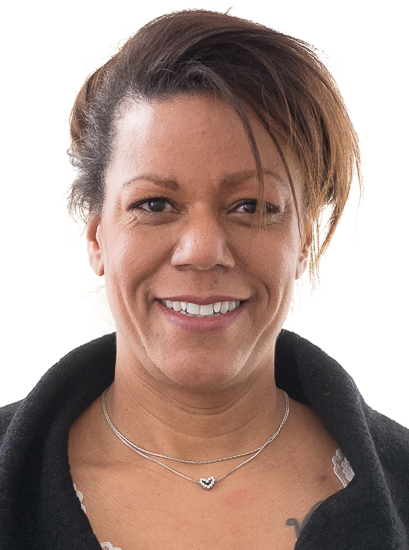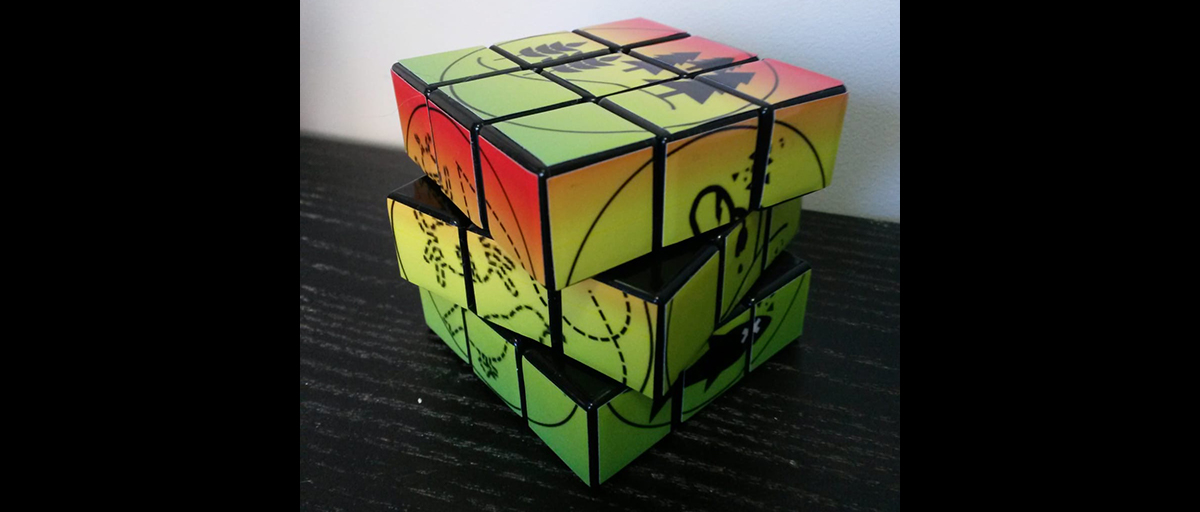- Sustainable fashion system
- Sustainable circularity
- Science-business interface
- Meta-theory
- Critical realism
- Feminist research
Celinda Palm is one of the course leaders for Världens Eko and the SERSD master’s programme at the Stockholm Resilience Centre
Palm completed her doctoral studies at the Centre in February 2023. Starting from August 2023, she is taking on a new role as course leader for our popular basic introductory course to sustainability science, Världens Eko. She will also be teaching some of the Centre's master's programme, Social-Ecological Resilience for Sustainable Development.
Her PhD project started as part of a science-business collaboration between Stockholm Resilience Centre (SRC), Ellen MacArthur Foundation and H&M. The collaboration developed a vision for a textile industry that captures the value of disposed textile material and by that ensuring that the growing demand for textile fashion can be met within the limits of this planet.
Palm investigated how to apply a critical realist perspective may help to integrate knowledge of textile fashion clothes as both material and non-material objects, and facilitate analysis of quantitative and qualitative results.
Her research contributes to science by development of ‘Earth resilience’ theories; the circular economy framework by integrating a social-ecological resilience system perspective; business actions related to textile fibres by presenting visions and pathways for transformation to a sustainable fashion system operating within planetary boundaries.
Palm is frequently invited as a lecturer in the field of sustainable fashion at national universities and schools. Palm is part of multiple expert groups informing business and policy makers on sustainability and circularity relating to fashion. She is an appreciated advisor to international profiles, participates in panel debates and round table discussions, and speaks at sustainable fashion and business events.
Palm has over 25 years embodied relationship to fashion as a practitioner which has now extended to include academic degrees with the fashion system as focus area. She holds a degree of Licentiate in Sustainability Science from Stockholm University, a MSc from SRC's "Social-Ecological Resilience for Sustainable Development" programme, and a BA in Fashion Studies from Stockholm University.
Prior to returning to academia, she was trained in textile arts and as a couture tailor, patternmaker and designer. She holds the skills to spin and dye raw wool, create a treadling draft and all steps from weaving a fabric to design, construct pattern, cut and create a jacket according to couture tailoring rules.
She spent over 15 years working in the fashion industry with a special focus on textile and design. Palm has co-founded a sustainability consultant agency and advises businesses in sustainability, strategy and the multi-scale processes of transformative change.
Palm is an external board member for ‘Care' project led by Electrolux aiming to prolong the use of clothing and thereby decrease environmental impacts. She is also a member of the expert knowledge group on ‘Product design, Production & Technology’ for the ‘Textile & Fashion 2030—the national platform for sustainable fashion and textiles’.
Key publications
Palm, Celinda, Sarah E. Cornell, and Tiina Häyhä. ‘Making Resilient Decisions for Sustainable Circularity of Fashion’. Circular Economy and Sustainability, 12 April 2021. https://doi.org/10.1007/s43615-021-00040-1.
Cornell, Sarah, Tiina Häyhä, and Celinda Palm. ‘A Sustainable and Resilient Circular Fashion and Textiles Industry: Towards a Circular Economy That Respects and Responds to Planetary Priorities’. Stockholm, Sweden: Stockholm University’s Stockholm Resilience Centre for the Ellen MacArthur Foundation and H&M Group, 2021. https://doi.org/10.5281/ZENODO.4561847.
Hileman, J., Kallstenius I., Häyhä T., Palm C., and Cornell S. ‘Keystone Actors Do Not Act Alone: A Business Ecosystem Perspective on Sustainability in the Global Clothing Industry’. PLOS ONE 15, no. 10 (30 October 2020): e0241453. https://doi.org/10.1371/journal.pone.0241453.






